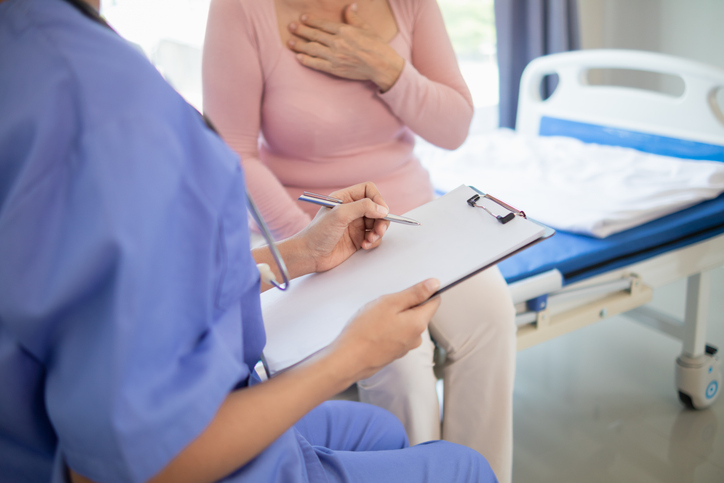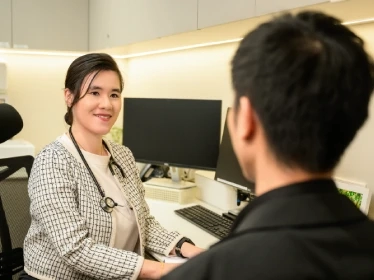
In Singapore, many women juggle work, caregiving, and family responsibilities. With so much on their plates, it is easy for personal health to fall behind. Yet looking after your health is not just about feeling well in the moment. It is about staying ready for what lies ahead and continuing to show up fully for the people and moments that matter.
With Mother’s Day just around the corner, it is a timely reminder to care for the women who spend so much time caring for others. Whether for yourself, your partner, or your mother, taking that first step towards regular health screening can go a long way in protecting long-term well-being.
From young adulthood through to the later stages of life, the health screenings women need will naturally change. Below, we explore the key ones to consider at each stage, and how they support a woman’s health over time.
Key Screenings That Support Women’s Health
As women move through different stages of life, their health needs naturally shift. With these changes, certain conditions may begin to develop quietly, without obvious signs. This is why going for regular health screenings plays an important role in helping women stay ahead of potential issues before they become more difficult to manage.
What makes this even more important is that many of these conditions do not cause pain or discomfort in the early stages. Concerns such as cervical abnormalities, breast lumps, and changes in bone strength can develop silently, which means they are easy to miss. Regular health screening helps bring these issues to light before they affect daily life.
Health screening is not just about looking for problems. It’s about giving women a clearer picture of what is happening inside their bodies, even when everything feels normal. Tests like Pap smears, mammograms, ultrasounds, and bone scans each provide information that would help guide the next steps, whether for prevention or treatment.
If you are unsure where to begin, it helps to know what each test is for and when it might be recommended. The table below outlines some of the more common women’s health concerns and the tests used to detect them.
Health Concern | Recommended Screening | Purpose |
Cervical Cancer | Pap Smear & Human Papillomavirus (HPV) Test | Checks for abnormal cervical cells and detects high-risk strains of HPV known to cause cervical cancer. |
Breast Cancer | Mammogram & Breast Ultrasound | Mammogram detects early signs of breast cancer, while breast ultrasound further evaluates areas of concern, particularly in those with dense breast tissue. |
Ovarian Cysts & Cancers | Pelvic Ultrasound (Transabdominal / Transvaginal) | Ultrasound imaging used to examine the uterus, ovaries, and bladder — includes both external (pelvic) and internal (transvaginal) scans to detect cysts, fibroids, or signs of endometriosis. |
Ovarian Cysts & Cancers | CA-125 Blood Test | Measures one’s CA-125 protein levels, which might be elevated in ovarian cancer. |
Hormonal Imbalances (e.g. Thyroid) | Blood Hormonal Profile Test (fT4, TSH, PRL, Testosterone, E2, FSH, LH) | Assesses thyroid function and helps identify common female hormonal imbalances, including early signs of polycystic ovarian syndrome (PCOS). |
Osteoporosis | Bone Density Test | Measures bone mineral density to diagnose osteoporosis or assess fracture risk. |
When to Go for Women’s Health Screenings
Now that we’ve explored the key screenings that support women’s health, the next step is understanding when each one should be done. Timing matters, especially for conditions that might not show symptoms early on. Instead of waiting for problems to appear, knowing when to screen gives you the chance to act before they become harder to manage.
Screening timelines are generally guided by age, symptoms, and personal risk. Some tests begin in your twenties, while others become relevant only later in life. What matters is knowing when each one applies, so you can take the right steps at the right time.
The overview below follows the screenings covered earlier and shows when they are typically recommended across different life stages:
Ages 18 to 24
At this stage, most women do not require routine health screenings unless symptoms are present. However, it is still a good time to get comfortable with your body, seek advice if anything feels unusual, and start building the habit of preventive care.
- HPV Vaccination: Strongly recommended during this age to protect against cervical cancer before potential exposure.
- Cervical Cancer Screening: Not typically recommended before age 25 unless specifically advised by a doctor.
- Sexually Transmitted Infections (STI) Testing: Might be recommended if you are sexually active or considered at higher risk.
- Ultrasound (Transabdominal): Only suggested if you experience menstrual irregularities, pelvic pain, or other related symptoms.
Ages 25 to 29
This is when cervical cancer screening begins for most women. Other screenings may be introduced if symptoms are present or if you are managing reproductive health concerns.
- Pap Smear: Recommended every three years for women who have not received the HPV vaccine.
- Pelvic or Transvaginal Ultrasound: Might be suggested if you experience irregular periods, pelvic pain, or are undergoing fertility checks.
- Blood Hormonal Profile Test: Recommended if you experience menstrual irregularities or symptoms that might suggest a hormonal imbalance.
- Thyroid Function Test: Not routine, but it is recommended if you have symptoms such as unexplained fatigue, weight gain, or mood shifts.
Ages 30 to 39
As you enter your thirties, some health screenings are updated with newer testing methods. Health needs can also shift after pregnancy, which may prompt additional checks based on how your body is responding.
- Pap Smear / HPV Test: Every five years if your last HPV test was negative.
- Blood Hormonal Profile Test: Recommended for those with irregular periods, especially if recently married or planning to conceive.
- Pelvic or Transvaginal Ultrasound: Might still be used to investigate symptoms like bloating, pain, or cycle changes.
- Thyroid Function Test: Might be recommended postpartum or if symptoms continue.
Ages 40 to 49
This is when breast screening typically becomes part of the routine. Cervical cancer screening continues, while other tests might be introduced depending on symptoms or personal risk.
- Clinical Breast Examination: Recommended to do it once a year.
- Mammogram / Breast Ultrasound: Might be advised from age 40, especially if you have a family history of breast cancer or other risk factors.
- Pap Smear / HPV Test: Continue every five years, as long as you fall within the recommended screening age and your last result was negative.
- Pelvic Ultrasound / CA-125 Blood Test: Not part of routine screening, but might be recommended to assess for ovarian or uterine conditions if you experience symptoms such as pelvic pain, bloating, or abnormal bleeding.
- Bone and Thyroid Health Checks: Only considered if symptoms or early risk factors are present.

Ages 50 to 69
For women in this stage of life, screening becomes more structured. Regular mammograms are recommended, cervical cancer screening may continue, and bone health comes into sharper focus, especially after menopause.
- Mammogram / Breast Ultrasound: Every two years for women aged fifty and above, even if you feel well.
- Pap Smear / HPV Test: Continue if you are within the screening age range and have not been advised to stop.
- Bone Mineral Density (BMD) Scan: Often recommended if you have gone through early menopause, have low body weight, or a family history of osteoporosis.
- Ovarian Tests (Ultrasound or CA-125 Blood Test): Used only if symptoms appear or if you have an elevated risk due to family history or genetic predisposition.
Ages 70 and Above
As you grow older, screening becomes more individualised. The decision to continue or stop depends on your general health, past screening results, and whether the benefits still outweigh the risks.
- Mammogram / Breast Ultrasound: Continue if you are well enough to benefit from early detection. Your doctor can help decide if screening should still be part of your routine.
- Cervical Cancer Screening: Usually stops after age 69 if your last few results have been clear.
- BMD Scan: Still recommended every two to three years, especially if you have not been diagnosed with osteoporosis but remain at risk.
- Any Other Health Screenings: This should be guided by your current health status and discussed with your doctor as part of ongoing care.
A Thoughtful Way to Show You Care
Whether it is a mother, a wife, or someone you love, helping the women in your life prioritise their health is one of the most meaningful gifts you can give. It goes beyond celebration. It shows that her well-being matters, and that care is not just expressed in words, but in action. For children, it can be a way to give back to the person who has always put them first. For husbands, it can be a gentle nudge to support someone who often looks after everyone else before herself.
Making that decision together can carry even more weight. When health screening becomes a shared experience, it brings reassurance and support that might otherwise be missed. Going as a pair adds comfort, strengthens follow-through, and shifts the experience from being something clinical to something intentional. It is not just about checking off a list. It is about showing up and staying well together.
Healthway Screening offers options that support women at different life stages. If you are considering an executive health screening package for someone important, or are thinking about going together as a pair, we are here to help you take that step. Contact us to learn more about the available packages and how to get started.





